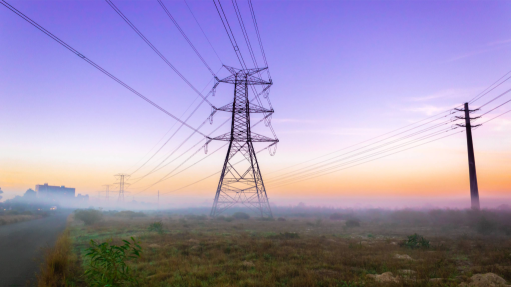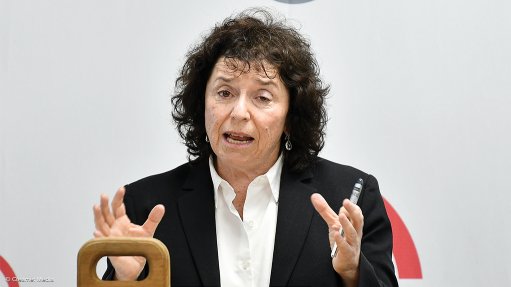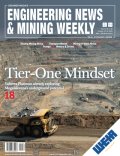SA Teachers Want Schools to Close. Are We Ready for E-Learning to Take its Place?
This article has been supplied.
South Africa’s education sector is under immense pressure as it struggles to regain some stability in the wake of the disruptions brought by COVID-19. The country’s largest teacher’s unions, including SA Democratic Teacher Union (SADTU), the National Professional Teachers’ Organisation of SA (NAPTOSA) and the Education Union of South Africa (EUSA) have come out in full support of the reclosure of schools.
As reported by the Daily Maverick, these unions have significant bargaining power as NAPTOSA and SADTU collectively represent 75% of the educator workforce in the country. (Mthethwa, 2020)
Wishing to hear from educators themselves, online professional learning community Zibuza.net recently put out a survey to their large network of teachers to hear how they were coping with the challenges of teaching under COVID-19 and what they need in order to continue.
Survey respondents ranged from Grade R to Grade 12 teachers and included teachers working at well-funded schools as well as individuals working at under-resourced schools.
The findings of this survey were clear: teachers are struggling to adjust to the demands of online and remote teaching, but that the health dangers of face-to-face teaching take precedence over all other concerns.
It is important to note that concern for both the health and the academic progress of their students is at the heart of teachers’ calls for schools to be closed. International research indicates that significant disruptions to education, disproportionally affecting poorer students under the pandemic, could result in “lifelong disadvantages.” (RISE, 2020)
In a virtual world, online learning seems like the natural solution to slow the spread of the virus. Unfortunately, South Africa does not have widespread access to the same technological resources as other developed countries.
The ‘Digital Divide’ is a clear barrier to e-learning, in homes where mobile phones are the primary means of internet access, data connections are often poor and expensive. When asked about the uptake of e-learning, one of the teachers went as far as to say, “the technology doesn’t reach any child in my ecosystem.”
Higher-risk teachers have been encouraged to work from home but that presents its own set of challenges. “Often teachers themselves are not ICT fluent and able to plan lessons at home and send them via email to their students. However, there has never been any kind of ICT teacher training at schools to assist with this,” one respondent shared.
It is essential that educators receive digital training because, as another respondent points out: “the future of digitizing education is in the hands of educators. Teachers are core to the success of any educational programme and curriculum delivery.”
Malcolm Mooi, founder of Zibuza.net, is acutely aware of these challenges. “We are doing what we can to digitally upskill teachers and provide them with essential e-learning resources, but there is no currently no standardized system in South Africa providing the same access to learners. One cannot be truly effective without the other.”
Zibuza.net improves lesson delivery by providing teachers access to quality resources like lesson plans, classroom activities, tools and applications to be more productive and efficient.
“We leverage technology to improve performance by enabling a professional learning community that is socially driven. These interactions are used to calculate where value is created and also quantify demand, whereby we match corporate sponsors to fund premium content for teachers, thus bridging the digital divide,” adds Mooi.
To get a better understanding of the practical ways in which technology could be used to minimise disruptions to the curriculum, Zibuza.net asked teachers to share their thoughts on how best teaching and learning could be done under these circumstances.
Their recommendations, based on their own experiences include:
- “Making learning through technology compulsory,”
- “The government should buy every learner a smartphone so that watching, and learning could be done online,”
- “Providing learners with data bundles for internet access, as has been done at tertiary institutions,”
- “Norms and standards should be directed towards bridging the digital divide i.e. buying modern technologies, subsidizing learners buying their own resources and providing learners with an internet connection,”
- “Teachers should be supplied with free data to keep parents informed via WhatsApp. Bulk SMS packages should be supplied to teachers in cases where parents do not have WhatsApp,”
- “Teaching and learning could be blended in schools where it is possible. Use social media to teach classes that are not attending on the day. When learners come, teach and give work (worksheets or digitally) to be done at home for a period when they will at home,”
- “Pre-record lessons and share via social media,”
- “The attitude and the willingness of educators to re-skill themselves will make remote teaching possible.”
It is clear that teachers feel that the pandemic has compelled the education system to prioritise the procurement of ICT tools for both teachers and learners as we have approached a point where ICT integration is no longer a ‘choice.’
“If all stakeholders in the sector make ensuring that even the poorest schools in the country are technologically resourced, we will be able to mitigate the negative impact of major disruptions to face-to-face learning in the future,” Mooi concludes.
Comments
Press Office
Announcements
What's On
Subscribe to improve your user experience...
Option 1 (equivalent of R125 a month):
Receive a weekly copy of Creamer Media's Engineering News & Mining Weekly magazine
(print copy for those in South Africa and e-magazine for those outside of South Africa)
Receive daily email newsletters
Access to full search results
Access archive of magazine back copies
Access to Projects in Progress
Access to ONE Research Report of your choice in PDF format
Option 2 (equivalent of R375 a month):
All benefits from Option 1
PLUS
Access to Creamer Media's Research Channel Africa for ALL Research Reports, in PDF format, on various industrial and mining sectors
including Electricity; Water; Energy Transition; Hydrogen; Roads, Rail and Ports; Coal; Gold; Platinum; Battery Metals; etc.
Already a subscriber?
Forgotten your password?
Receive weekly copy of Creamer Media's Engineering News & Mining Weekly magazine (print copy for those in South Africa and e-magazine for those outside of South Africa)
➕
Recieve daily email newsletters
➕
Access to full search results
➕
Access archive of magazine back copies
➕
Access to Projects in Progress
➕
Access to ONE Research Report of your choice in PDF format
RESEARCH CHANNEL AFRICA
R4500 (equivalent of R375 a month)
SUBSCRIBEAll benefits from Option 1
➕
Access to Creamer Media's Research Channel Africa for ALL Research Reports on various industrial and mining sectors, in PDF format, including on:
Electricity
➕
Water
➕
Energy Transition
➕
Hydrogen
➕
Roads, Rail and Ports
➕
Coal
➕
Gold
➕
Platinum
➕
Battery Metals
➕
etc.
Receive all benefits from Option 1 or Option 2 delivered to numerous people at your company
➕
Multiple User names and Passwords for simultaneous log-ins
➕
Intranet integration access to all in your organisation




















